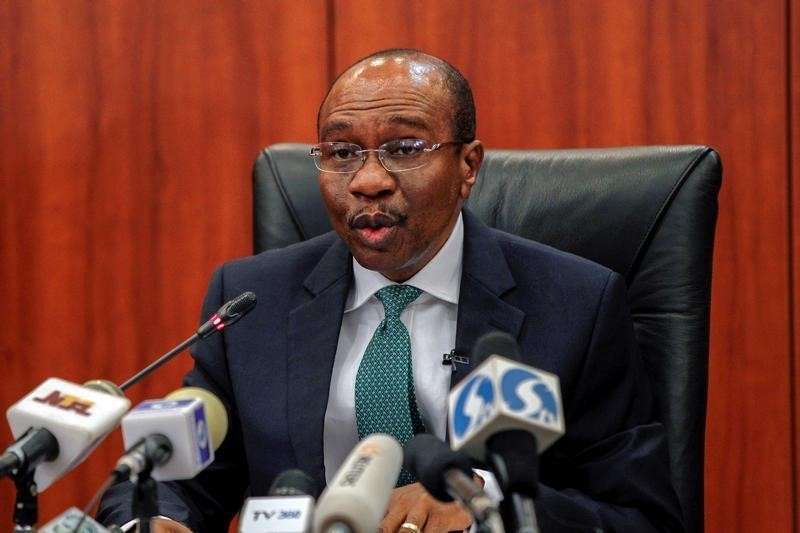The introduction of service-based tariff (SBT) in the Nigeria Electricity Supply Industry (NESI) effective from 1st September 2020 had put increased emphasis on the need to close the metering gap in the NESI. Closing the gap was necessary to enhance efficiency of revenue collection by Distribution Companies (DisCos) and thereby facilitate meeting their obligations to other upstream market participants.
According to the Nigeria Electricity Regulatory Commission (NERC), Nigeria’s metering gap is over 10 million, comprising of unmetered customers as well as customers with obsolete meters that need to be replaced. To deal with this, President Muhammadu Buhari in 2020 approved the launching of National Mass Metering Programme (NMMP) implementation.
The programme was built on key thematic areas including to: increase Nigeria’s metering rate; eliminate arbitrary estimated billing; strengthen the local meter value chain by increasing local meter manufacturing, assembly and deployment capacity; and support Nigeria’s economic recovery by creating jobs in the local meter value chain.
Beyond that, the objective was also to reduce collection losses (which was a major problem) and increasing financial flows to achieve 100 per cent market remittance obligations of the DisCos; and improve network monitoring capability and availability of data for market administration and investment decision making.
To support the government’s drive to deliver an effective power sector for improved power supply, the Central Bank of Nigeria (CBN) stepped in and made the difference with the provision of funds to support the financing of operations in the power in line with the government’s programme.
As at March 2021, the apex bank under the national mass metering programme, had disbursed N33.45 billion to 9 distribution companies for the procurement of 605,852 meters, while N89.89 billion was disbursed under the Nigeria Electricity Market Stabilisation Facility (NEMSF 2) to 11 distribution companies to improve the electricity supply industry in Nigeria.”
But that did not quite yield the expected outcome, as power generation companies (GenCos) accused the distribution companies (DISCOs) of under-remitting revenue through the Nigerian Bulk Electricity Trading (NBET) Plc, the administrator of the electricity pool in the Nigerian Electricity Supply Industry. The DisCos reneged in remittances to other stakeholders like GenCos and Gas suppliers by declaring meager collections as revenue from electricity collection.
The lack of transparency in the revenue collection process – handled by the Discos – led to the accumulation of over N400 billion debts that stifled business operations in all segments of the industry. While GenCOs’ debt is put at over N300 billion, DisCos complained of being owed over N100 billion by customers. Industry experts say the debt increased over time because of liquidity challenge, which constrained the DISCOs from meeting their financial obligations.
That huge debt burden made it very much difficult for the power firms get the required funds for their operations, including the purchase of equipment and spare parts.
Buoyed by the controversies and embarrassment that were caused by that questionable situation, the central bank moved and instilled collection discipline in the process. Intervention by the apex bank has brought transparency to the electricity revenue collection process by the DisCos. According to the presidential power sector working group, revenue collections since the last half a year have stabilised at between N57 billion and N65 billion.
That means that revenues collected by Discos in the country have increased by 63 per cent because of the recent reforms jointly carried out by the CBN and the federal government in the power sector. And that means more revenues available to operators in the sector to stimulate more activities and improve on power supply.
As part of efforts to resolve the major challenge of revenue loss in the system, the CBN had escrowed the accounts of the nation’s eleven distribution companies, otherwise known as DisCos, with the bank accounts locked, with cash allowed to come in but withdrawals by DisCos blocked. The fund is thereafter allocated based on priority. Under the arrangement, the repayment of loans to the Federal government was the first priority followed by the 100 percent payment of market operators’ invoices and the invoices from the Nigerian Bulk Electricity Trading Company before others.
For Vice President Yemi Osinbanjo, with increasing funding, the power sector would soon be fully financed by the market, rather than government subsidies. He also said in collaboration with the private sector, efforts to invest $3 billion in revamping the distribution and transmission networks were on-going.
The federal government reportedly adopted a new plan, targeted at recovering more than N173 billion NBET Plc debt from the 11 Distribution Companies, DISCOs.
“It is anticipated that all electricity market revenues will be obtained from the market with limited subsidies as reforms in metering and efficiency with the Discos continue to improve.
“There is accelerated investment in transmission and distribution (over $3 billion) infrastructure that will put Nigeria on a path to 10GW+ and beyond through interventions with the CBN, the Siemens partnership, the World Bank, and African Development Bank and others.” The vice president said in furtherance of efforts to extend electricity to the whole country, the current administration had continued to invest in expanding generation to cater for its current and future needs.
The 11 distribution companies received a total of N542.73 billion out of N816. That is an increase of N42.46 billion from the total of N230.96 billion shortfall recorded in 2019. The amount the DisCos generated from their consumers in 2020 increased by N55.49 billion from the N487.24 billion recorded in 2019.
Economic and energy experts have said latest intervention by the Central Bank of Nigeria (CBN) in the distribution segment of the nation’s power sector would contribute to significantly reduce the lingering challenges of poor infrastructure and arbitrary billing of end-users. They also said it would help to build capacity for evacuation of often stranded electricity.
Nigeria has a total of 8, 310, 408 registered active electricity customers, according to official data. Since the power sector was privatized, only 3, 704, 302 (44.6 per cent) of electricity customers were reportedly metered, leaving out 55.4 per cent. That has been on the power distribution capacity of the DisCos. Though there is a large gap to close, the authorities have restated the commitment to reduce the number with the pick in revenue to the sector.
Industry watchers say the intervention by the CBN remains the right step because, given the current installed capacity for the generation companies in Nigeria, the inability of the Discos to completely distribute and collect payment would continue to hinder the ability of the country to fully leverage the installed capacity.
Economic expert, Stephen Kanabe said efficient metering and prompt distribution of generated power will not only contribute to economic, but would enable the sector to generate enough revenue to address the liquidity gap in the sector.
He said it was worrisome the DisCos were not doing enough to bridge the metering gap, adding that without government intervention in bridging the metering gap, DisCos may not show the willingness to end arbitrary billing of consumers.
Associate director, energy, utilities and resources at PricewaterhouseCoopers, Habeeb Jaiyeola, had while reacting to the CBN intervention in the sector said government’s continued support to Discos will have an overall impact on the sector to facilitate the required progress, adding that the federal government also has equity ownership in the DisCos needs to see to their successes.
There had been pleas by various stakeholders for the CBN to intervene and help realise the aim of improving power supply to Nigerians and companies operating in the country. National president of the association for public policy analysis (APPA) Princewill Okorie said the funding programme by CBN would end estimated billing of consumer, which he said is critical to development of the country. He said it proper metering of electricity consumers will ensure accountability in the power sector. As it stands, there are indications that the electricity distribution companies have massively improved their ability to collect revenue from customers, improving liquidity in a cash-strapped power sector and raising hopes for new investments. According to NERC, the DisCos have generally improved collection efficiency across the various tariff bands by 70 percent on average.
In the eye of the authorities, that is an addition to the brag list. The believe is that the improved revenue collection would translate to improved remittance to the Nigerian Bulk Electricity Trading Company who now has half of their invoices settled by DisCos rather than around 30 percent that was previously remitted. Recent events show that the DisCos now prioritise distribution of power to areas where customers are both willing and able to pay. The biggest collections emanated from customers under the highest cost tariff classes.
NERC introduced the Service Reflective Tariff plan in July 2020. It however failed to take effect until December largely due to the challenges posed by COVID-19. Under the SRT, customers are grouped in different tariff bands according to the number of hours of power supplied daily, with the highest receiving 20 hours or more, paying between N45 and N55kwh, and the poorest people getting less than four hours of supply daily and seeing no increase in their tariff.
For the federal government, the improvement in the process is an indication that the reforms in the sector were having the right impact. Not a few people hope that the trend would be sustained for higher performance and accountability in the sector.









